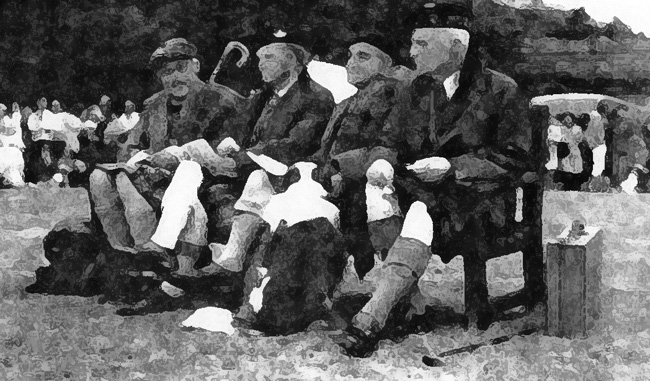Judging lessons
Editor’s note: an opinion piece like this by the pipes|drums editor is generally reserved for Blogpipe. In this instance, the article became longer due to the importance of the topic, and is thus offered on pipes|drums as an editorial. This is opinion. Your opinion might well differ, and the article is intended to create constructive dialog about an important issue.

By Andrew Berthoff
In 1984 I was not yet 21 years old and won the Silver Medal at the Northern Meeting at Inverness. I had lived in Scotland for more than a year, doing my third year of university at Stirling. Early on, I was fortunate to get a few lessons in gpiobaireachd from a great piper who lived far away, at least in Scotland terms. Around October 1983 I was truly gifted to be accepted as a pupil by another legendary piper for piobaireachd about once a month. He lived much closer to where I was. About the same time, I started to get weekly lessons – in light music only – from yet another famous piper.
These great men imparted their wisdom freely to me. I was a rather scared and awestruck kid from St. Louis who essentially was too frightened (or wise) to do anything except listen, learn and practice hard so as not to disappoint them or myself. I’d come too far to do anything else and I was and continue to be grateful to them.
I must stress that each of these pipers I considered then, and consider today, to have the utmost integrity and honesty. Their ethics and intentions are beyond reproach.
I had spent the Scottish winter and summer playing at as many contests as possible. Whoever the judges were, I would never question it. I just wanted to play and compete. A few prizes started to fall my way in the days when there were no A or B gradings, so I’d compete with people like Iain MacFadyen, John MacDougall, Murray Henderson and Iain Morrison. By July or so I was enjoying a little roll, getting high prizes around the games, which then were well attended.
When it got close to the Northern Meeting they revealed the judges. As luck – or fate – would have it, not just one, not two, but all three of the judges for the Silver Medal were the people who had taught me directly in the last year. In those days the Silver Medal was adjudicated by one experienced judge and two current top-tier competitors. It was a way then to bring active player-judges into the mix. I am sure that each of them simply did what was always done back then, and didn’t much question their teacher-judge situation. I wasn’t the only pupil in the mix, to be sure, and it was simply how things were then and for the preceding two-hundred-odd years of piping competition.
But I remember not knowing what to make of my fortune or fate. Was it good? Was it bad? So, as with the rest of it, I simply shut up and did my thing. I just wanted to play and compete, and I wouldn’t dare make any waves. It was just the way things were. Go with the flow.
I played “Lament for the Little Supper” – a tune that I went through with my regular piobaireachd teacher and never with the other two. I was first on after lunch, as I recall. I played it as well as I could on an in-tune instrument. I was pleased. Perhaps of some relevance, I had played “Grain In Hides and Corn in Sacks” at the Argyllshire Gathering Silver Medal and got nothing. I thought I’d played even better there.
One of the great memories of my life is my dad, who came over to visit in August and September, telling me the news that I had won. He was visibly shaking with excitement, teary-eyed with pride. It was what I had been working toward, and it actually happened. My dad, who had supported every ounce of my piping ambitions with time, money and love was there to share the moment with me.
Later, each of the judges separately told me that the first-prize decision was quick and unanimous. I thought that that was nice, but a little odd.
The prize didn’t sit perfectly well with me and it never has. Why? Because, while I knew I had played my best and probably deserved it as much as the next person, it had the appearance of bias . . . in triplicate. I got the Silver Medal on my first try from three judges who had taught me in the past year. Only one of the judges I had actually gone through the tune with, and I am certain that they called it like . . .

NO COMMENTS YET